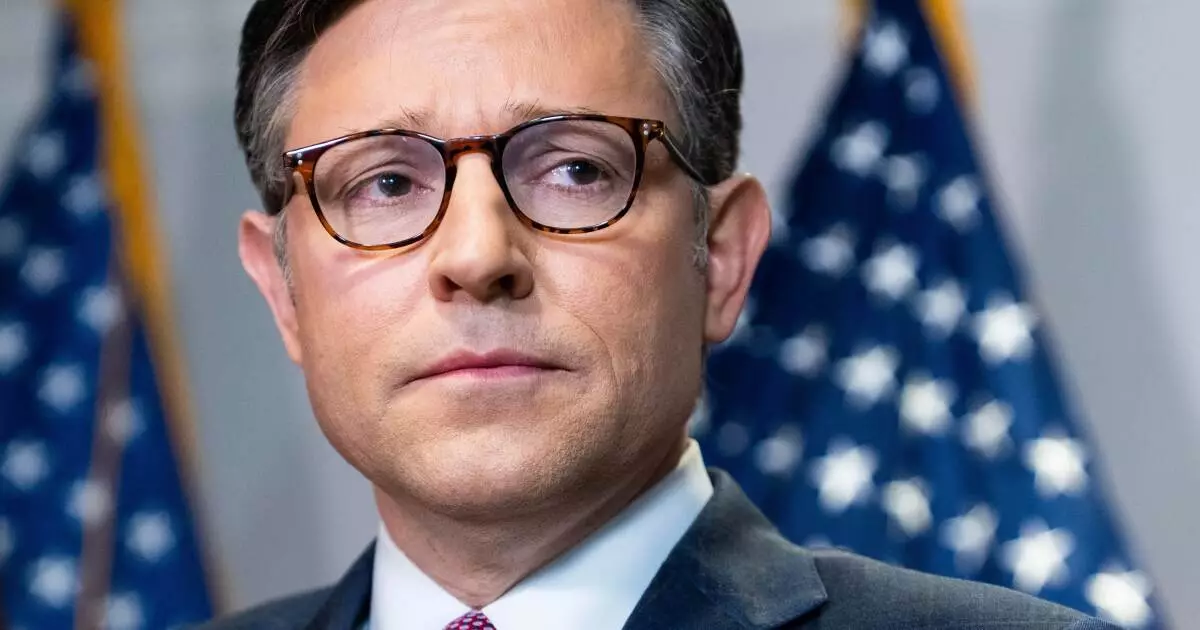Political Turbulence: The Clash Over Budget and Voting Legislation in the House

As the September 30 deadline looms, House Republicans find themselves engulfed in conflict, attempting to balance the urgent need to fund the government with legislative efforts aimed at altering voting regulations. The proposed bill, titled the “Safeguard American Voter Eligibility Act,” aims to reinforce existing laws prohibiting non-U.S. citizens from voting in presidential elections, a move that many argue is redundant since such actions are already illegal. The ongoing feud not only has implications for the budget process, but also raises questions about the Republican party’s cohesion amid external challenges.
House Speaker Mike Johnson from Louisiana is at the forefront of this contentious debate, rallying support for the voting bill amidst growing opposition even within his party. Johnson expressed the gravity of this legislation, emphasizing its significance for lawmakers. However, when the proposed vote was abruptly removed from the agenda, it underscored the schism within Republican ranks, particularly among defense-minded lawmakers advocating for increased military spending over voting legislations. This internal discord reflects broader ideological battles that complicate consensus-building within the party.
The ramifications of a potential government shutdown are felt far beyond the halls of Congress. Local governments depend heavily on federal funding; in fact, nearly a third of their revenue is intergovernmental in nature. County officials, like Nicole Weissman from the National Association of Counties, articulate their reliance on federal allocations, illustrating how a cessation in funding could jeopardize local governance and planning efforts. Additionally, Irma Esparza Diggs from the National League of Cities illuminated the reimbursement structure of federal grants, outlining the burden that delays could impose on local governments that must initially cover costs before seeking federal reimbursement.
Amidst this uncertainty, a substantial funding proposal amounting to $1.6 trillion aims to extend current spending levels for six additional months. This ongoing struggle to secure a continuing resolution until March 28 signifies a strategic maneuver, especially with the remote potential of a power shift in Washington after the next presidential election. The strategic implications are clear: a newly minted administration could reshape fiscal priorities for the upcoming fiscal year.
The convoluted process of fiscal appropriations typically unfolds through a series of complex negotiations that begin with the presidential budget proposal submitted in February of the previous year. Historically, both houses of Congress are expected to finalize their fiscal plans by June 30, yet current tensions have risked disrupting this timeline. Recent congressional sessions have seen varied success, with the House passing only five of the twelve necessary spending bills while the Senate advanced nearly all of them. The potential for emergency expenditures and backdoor agreements further complicates the budgeting landscape, which can dramatically shift the allocation of resources.
Historical Context: Lessons from Previous Leadership Struggles
The backdrop of this chaotic political situation is marked by the unseating of former House Speaker Kevin McCarthy, driven by internecine budget disputes that intertwined funding for urgent international engagements, such as support for Ukraine and Israel, with contentious budget cuts to domestic agencies like the IRS. Such episodes highlight the fragile nature of bipartisan cooperation amid partisan divisions, raising fears that new rounds of budget talks will repeat prior blunders instead of yielding constructive resolutions.
As Congress inches closer to the budgetary deadline, the interplay of legislative priorities and party unity will be crucial in determining the government’s fiscal direction. The rise in intra-party conflicts, particularly evident in the debates around voting legislations and military spending, reveal a party struggling to maintain a cohesive identity in the face of diverging interests. As the political landscape shifts, the ability to manage these tensions will be essential not only for maintaining government funding but also for the Republican party’s future viability in a rapidly changing political environment.





